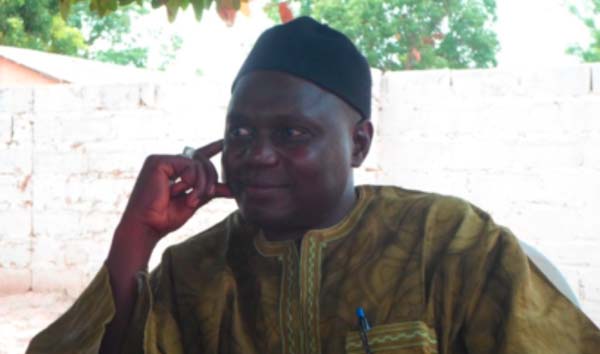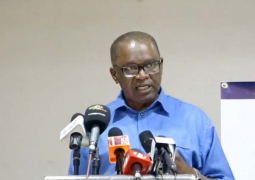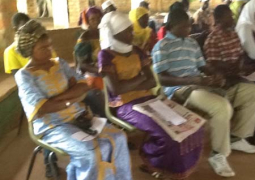
Seyfo Ebrima Jammeh was speaking recently in Illiasa village in the North Bank Region during a monitoring field visit by experts and project officials of the NEA related to the implemented UNDP/GEF Coastal Resilience Project sites that benefitted from the alternative livelihood component of the project.
The project on enhancing resilience of vulnerable coastal areas and communities to climate change, is a four-year project devised to enhance resilience of vulnerable coastal areas and communities to climate change, and to reduce the country’s vulnerability to sea-level rise.
The alternative livelihood component of the UNDP/GEF Coastal Resilience Project is striving to ease climate stress in the affected local coastal communities, whose farmlands and rice fields are affected by the phenomenon of climate change.
The project coordinator, DodouTrawalley, led a team of experts from areas of Environmental Impact Assessment (EIA) and horticulture to some of the benefitting communities sites, where the construction of their perimeter fence of their gardens has started in earnest.
The benefitting communities visited were Bintang and Bondali-Tenda in the WCR, Missera in LRR, Illiassa and Touba-Kolong in NBR.
The district chief revealed that such environmental projects foster the development of a community’s identity and spirit, whilst it also offers unique opportunities to teach youths about environmental sustainability, basic business principles, where food comes from, by creating Jobs and life skills.
He said it would also contribute toward the reduction of youths risking their lives taking the back way to Europe.
According to Seyfo Jammeh, community gardens provide a significant source of food, income, and access to nutritionally rich foods that may otherwise be unavailable to low-income families and individuals.
He, therefore, called on the community of Illiasa to take ownership of the project and make sure it is jealously protected for a sustainable future.
The Alkalo of Bintang village in the West Coast Region, Gibriel Ceesay, called on the villagers to take the project seriously, because they have been struggling to have such a well-protected garden for the past two decades without success.
Ebrima Fatty, the Alkalo of Bondali-Tenda, assured the visitors that all the materials and equipment of the garden project sent to the village would be jealously protected, guided and would be used for the purpose intended.
The Alkalo of the Kiang West village of Misera, Landing Camara, noted with confidence that such projects are the type people living within localities need to increase their nutrition and economic status.
Read Other Articles In Article (Archive)

Citizens Alliance party is Gambia’s saviour -says Party Leader
Mar 16, 2020, 1:27 PM


